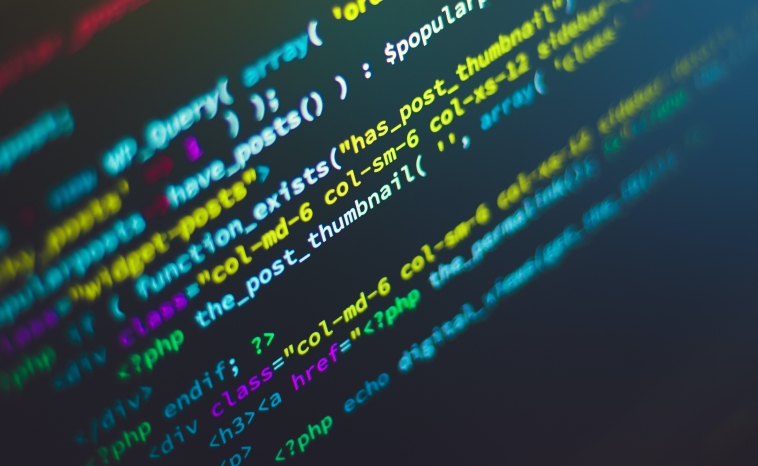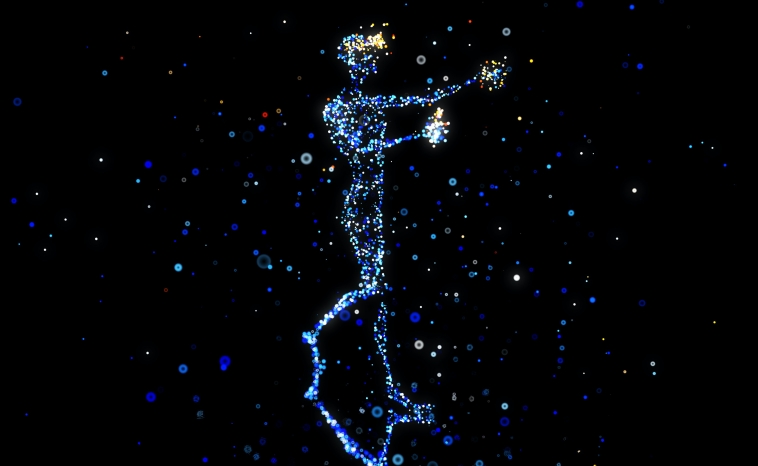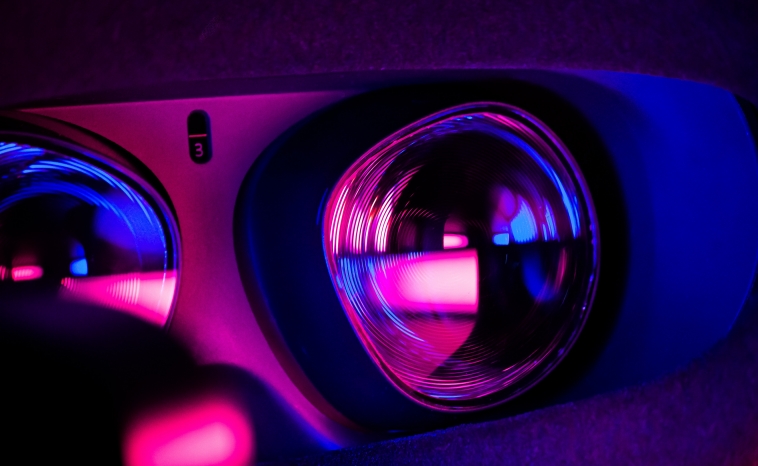Do We Live in a Simulation?

The idea might sound like a far-fetched science fiction plot, but do we live in a simulation? In this article, we’ll weigh up the scientific and philosophical arguments of the theory and consider the possible implications the theory could have for humanity.
In the vast expanse of the universe, a question has emerged that challenges our perception of reality – do we live in a simulation? This intriguing proposition, as sci-fi as it may seem, is a topic of serious debate among philosophers, scientists, and tech experts alike. It’s a concept that invites us to consider whether our existence is merely coded data in an advanced cosmic program, rather than a tangible, physical reality. This fascinating topic not only questions our understanding of consciousness and existence but also disrupts our perception of what is real and what is not. So, buckle up and journey with us as we delve into the captivating thought experiment that questions the very fabric of our reality – are we living in a simulation?
- The Origins of Simulation Theory: Nick Bostrom
- Do We Live in a Simulation? Examining the Evidence
- The Simulation Hypothesis: Is Life a Simulation?
- The Implications of Believing We Live in a Computer Simulation
- Criticisms and Counterarguments Against Simulation Theory
- Popular Culture and the Simulation Theory
- Simulation Theory and Technology: The Role of VR and AI
- Do We Live in a Simulation: Final Thoughts
The Origins of Simulation Theory: Nick Bostrom
While the concept of simulation theory may seem like a recent development, Nick Bostrom first proposed the notion in 2003. In his paper titled “Are You Living in a Computer Simulation?”, Bostrom presents a statistical argument suggesting that we are more likely to live in a simulation. He posits that if a civilisation ever reached a post-human stage and ran simulations of the past, we would be part of that simulated past.
Bostrom based his simulation argument on a few fundamental assumptions. He assumes future civilisations will have enough computing power to run a significant number of simulations of their ancestors. Second, he assumes that civilisations would be interested in running simulations. According to Bostrom, if these assumptions hold true, then we are likely to be living in a simulation.
However, the Nick Bostrom simulation theory isn’t without its detractors. While fascinating, many argue that Bostrom’s assumptions have significant flaws, leading to several discussions, debates, and further studies on the topic.
Do We Live in a Simulation? Examining the Evidence

The question, “Do we live in a simulation?” is no longer confined to the realms of science fiction and philosophy. Some scientists are attempting to find empirical evidence to support or refute this theory. No definitive proof exists to confirm or debunk the simulation hypothesis, but some interesting theories and observations have been made.
One such theory is based on the concept of “quantum superposition”. In quantum mechanics, particles can exist in multiple states simultaneously, known as a superposition of states. Once observed, these particles “collapse” into a single state. We could interpret this strange phenomenon as a computational shortcut that saves resources until a decision is absolutely necessary, much like a simulation.
Also, some physicists have suggested that the universe’s adherence to mathematical laws could indicate a simulated reality. If the universe is a simulation, it would naturally obey mathematical rules, just as a computer program does.
Another argument supporting the idea is the “Planck length”. The Planck length is the smallest possible unit of measurement in the universe, which could be interpreted as the “resolution” of the universe, much like pixels on a screen. This “pixelated” nature of the universe might indicate that it’s a digital construct.
Finally, it’s important to consider the “cosmic ray test”. Some scientists propose that if the universe is a simulation, it should have a fundamental limit to the energy of cosmic rays, much like a limit to the speed of objects in a video game. While this is still a theoretical concept, it presents an interesting avenue for testing the simulation theory.
The Simulation Hypothesis: Is Life a Simulation?
The simulation hypothesis is an extension of the simulation theory, suggesting that life as we know it is a simulation. This hypothesis proposes that the reality we perceive isn’t the base reality but a digital construction created by a more advanced civilisation.
This hypothesis raises some complex, almost disturbing questions. If life is a simulation, what does that mean for our understanding of consciousness? Is our sense of self, thoughts, and emotions merely a product of sophisticated coding? Moreover, what does it imply about free will? Are our decisions and life events pre-determined by a complex algorithm?
While these questions might be unnerving, they are crucial in understanding our existence. They compel us to re-evaluate our understanding of reality, consciousness, and the nature of existence itself.
The Implications of Believing We Live in a Computer Simulation

Believing that we live in a computer simulation can profoundly affect our worldview. It can fundamentally alter our perceptions of reality, existence, and even morality. If we’re part of a simulated reality, it could mean that our actions and experiences, while seeming real to us, are merely programmed events.
This belief can also impact our understanding of death and the afterlife. If we’re in a simulation, does death merely mean the end of our program? And does an afterlife imply a different level of the simulation, or even a different simulation altogether?
The belief in a simulated reality also raises ethical questions. If a more advanced civilisation created our simulation, what would be their responsibilities towards us? Are they morally obliged to prevent our suffering, or is it all part of the simulation?
Criticisms and Counterarguments Against Simulation Theory
Despite the intriguing notions, the simulation theory has its critics. Many argue that the idea is untestable and, therefore, unscientific. If we’re inside a perfectly simulated reality, there would be no way to discern it from the real thing.
Moreover, some critics argue that the theory is based on flawed assumptions. They contend that just because a future civilisation might be able to run simulations doesn’t necessarily mean they would. Furthermore, some see the idea that we’re more likely to be in a simulation simply because there could be countless simulations as a flawed statistical argument.
Others argue against the idea from a philosophical standpoint. They suggest that even if we were in a simulation, our experiences and perceptions would still be real to us, making the distinction between reality and simulation meaningless.
Popular Culture and the Simulation Theory

The simulation theory has found its way into various aspects of popular culture. Movies like “The Matrix” and “Inception” explore the idea of simulated realities, and video games like “The Sims” offer virtual realities where players can control simulated lives.
These cultural references have made the concept of simulation theory more accessible and relatable. They’ve sparked curiosity and discussions among a wider audience, contributing to the growing interest in the theory.
While these portrayals are often dramatic and speculative, they reflect the simulation theory’s intriguing and complex nature. They offer a glimpse into the potential realities and ethical dilemmas that could arise if the theory were true.
Simulation Theory and Technology: The Role of VR and AI

The advancement in technology, particularly in Virtual Reality (VR) and Artificial Intelligence (AI), has given a new dimension to the simulation theory. VR technology allows us to create and experience increasingly realistic virtual worlds, which makes the idea of a simulated reality more tangible.
Similarly, the development of AI brings us closer to creating conscious beings within these virtual worlds. If we can create a conscious being in a simulated world, it begs the question: could we, too, be conscious beings in a more advanced civilisation’s simulation?
While we’re still far from creating a perfect simulation of reality or consciousness, these technological advancements provide food for thought. They make the simulation theory a more concrete concept rather than just philosophical or scientific speculation.
Do We Live in a Simulation: Final Thoughts
While controversial and speculative, the simulation theory continues to fascinate scientists, philosophers, and the general public. As we progress in technology and scientific understanding, the theory is likely to evolve. We may even find empirical evidence that either confirms or disproves the notion.
Whether we ever find definitive proof for or against the theory, it serves a crucial purpose. It forces us to question our understanding of reality, existence, and consciousness, pushing the boundaries of our knowledge and perception.
Ultimately, whether we live in a simulation might be less about finding a definitive answer and more about expanding our understanding of the universe and our place in it. Whether or not we live in a digitised reality, the simulation theory certainly offers a thought-provoking perspective on the nature of existence.
We might never know if we live in a simulated universe. But whether we do or don’t, we can still enjoy a universe full of fascinatingastronomical objects! And what better way to get familiar with them than by trying our the OSR’s One Million Stars App? With the app, you can travel through our galaxy from the comfort of your web browser, learning more about some of the highlights of the Milky Way along the way!

